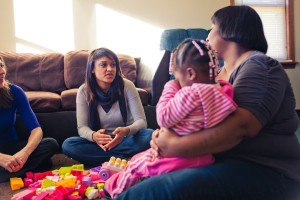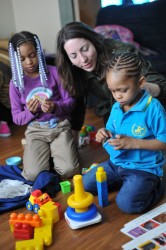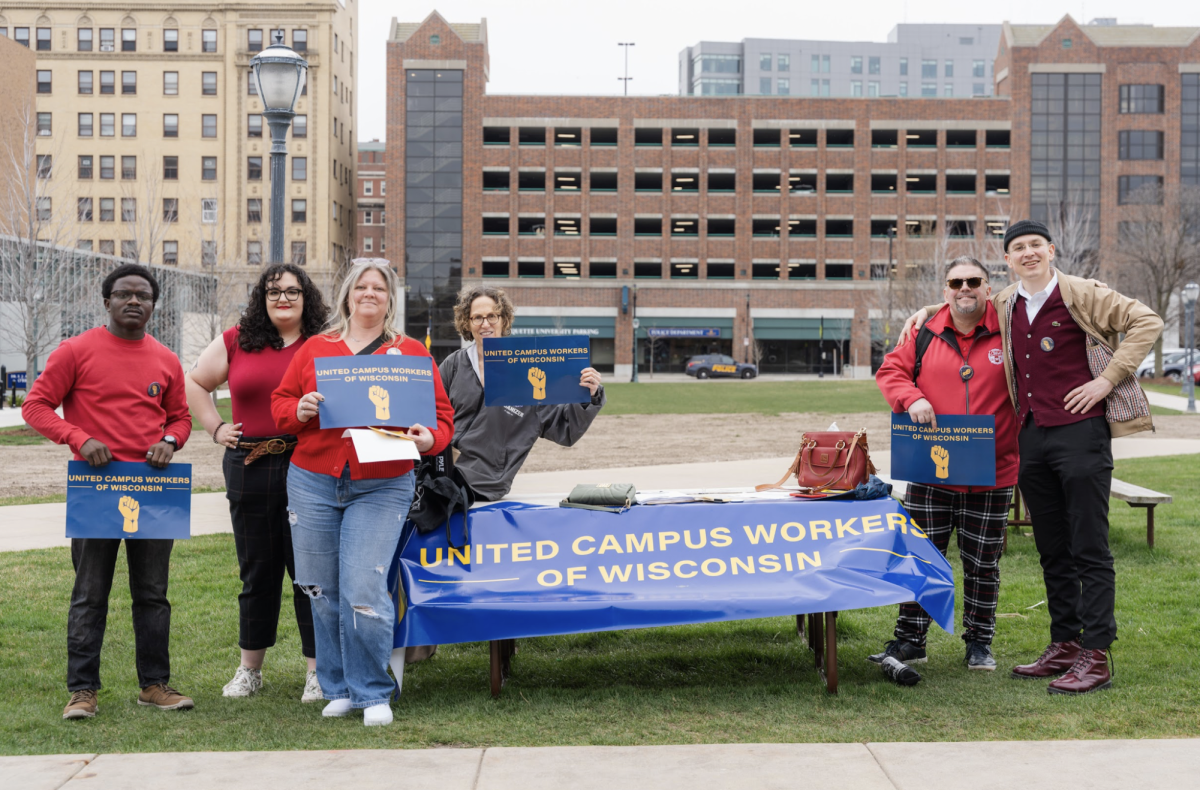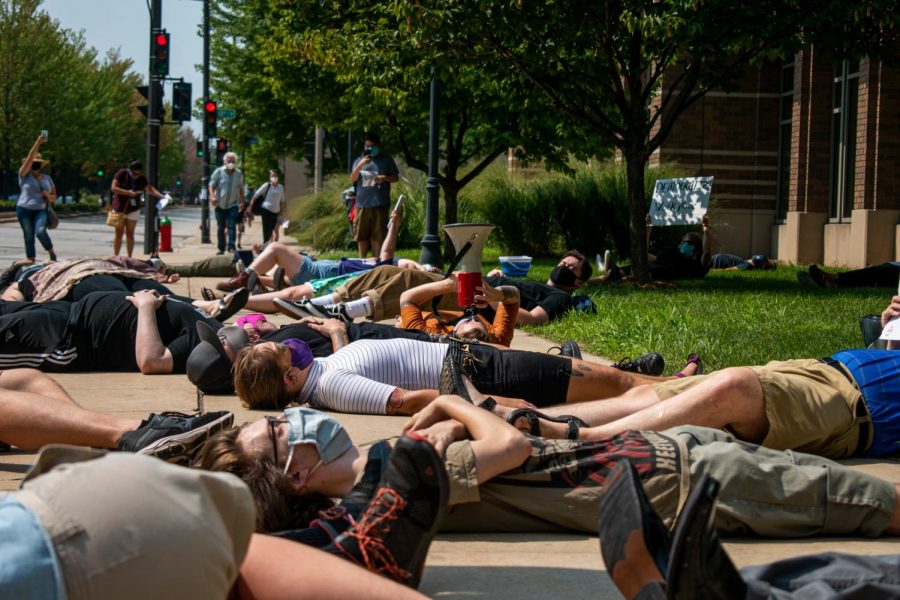
The Behavior Clinic offers mental health care to low-income children in Milwaukee, as well as additional support for their parents.
For Dominique Jones, a Milwaukee resident and a mother of a 3-year-old, getting health care is already difficult.
But getting mental health care for her child, who she said had multiple behavior problems, was another cost to add onto her daily expenses.
“I’m a single mom raising my son by myself, and I don’t always have the means to pay for everything,” Jones said.
It also doesn’t help that the U.S. Department of Health & Human Services designated most of northern Milwaukee as an area experiencing a substantial shortage in mental health care physicians.
That’s where the Behavior Clinic, a partnership between Marquette’s College of Education and Milwaukee’s Penfield Children’s Center, steps in.
The 11-year-old clinic, which worked with Jones and her child for two months, aims to bring affordable counseling services straight to the homes of children — mostly under the age of five — and parents living in the poorest areas of the city. The point is to cut out the transportation barrier facing many low-income families who need mental health care.
Thanks to a $75,000 grant from the Hearst Foundations, which will finance the clinic’s operating costs from until 2017, the clinic is free to families with insurance.
“With that, it was one less thing I had to worry about,” Jones said.
Robert Fox, founding director of the clinic and professor of counseling psychology at Marquette, said nearly 500 children are served by the Behavior Clinic each year, working with families for ranges of either 6-12 or 12-16 weeks.
“Children who live in poverty are at higher risk for developing and maintaining behavioral and emotional problems and experiencing trauma,” said Robert Fox, founding director of the clinic and professor of counseling psychology, in an email.
Fox also said the services are open to people throughout Milwaukee County, although most of their referrals come from north of Marquette and south of the I-94 highway.
Children qualify for clinic services if they have unusually long temper tantrums or issues with aggression, sleeping or eating. These problems often carry over to school and daycare, and can result in sadness, nightmares or difficulties with relationships after experiencing a traumatic event, according to Penfield’s website.
“Now he listens better, handles his anger better and talks better,” Jones said. “He’s just — he’s better. If we tell him to do something, nine times out of 10 he’ll do it. Parenting has become a lot easier now.”
CHALLENGES PERSIST
Despite the efforts of the clinic, however, offering mental health services in Milwaukee remains a persistent challenge.
Health & Human Services gives Milwaukee County a score of 20 in terms of county access to health care, with the highest possible score being 54. This means there’s a lot of room for improvement, specifically in terms of the number of physicians available to the population.
HHS divided the area with the highest need of physicians into two sections: the near north side and the upper north.
In order for those two designated areas to cover just the basic needs of their populations, they would need three and five more full-time physicians respectively.
And that’s not all. Fox said the families he works with often do not have insurance that covers the whole cost of the services.
“We always have to find generous external funders to support our work,” he said. “We need to level the playing field so that families in poverty can afford the same level of care as families who do not live in poverty.”
Add on the fact that families working with the clinic are often headed by single mothers who live in high-stress, dangerous neighborhoods, and it’s clear that the Behavior Clinic is ripe with challenges for both the clinicians and the people they serve.
“Encouraging fathers to take responsibility for raising their children is very difficult,” Fox said. “Often the mothers will turn to their religion and spirituality for encouragement and support.”
 Like any other program working to address poverty in Milwaukee, the services must deal with the racial challenges posed as a result of residential segregation.
Like any other program working to address poverty in Milwaukee, the services must deal with the racial challenges posed as a result of residential segregation.
“There’s a lot of distrust between races because of the historical prejudices and poor race relations, particularly in the low-income inner-city families,” said Ryan Mattek, a Marquette alumnus and employee at the clinic. “So, me as a white male clinician, it was difficult to bridge those barriers.”
The Milwaukee-Waukesha-West Allis metropolitan area experiences the highest level of segregation in the US, according to a study done by The Atlantic. Despite this difficulty, Mattek said going out of his comfort zone ended up being helpful, especially when it came to teaching parents more effective discipline techniques for their kids.
“Given that black males are way more likely to be arrested and incarcerated in Wisconsin, particularly in Milwaukee, teaching parents non-corporal versions of punishment, I think, (is) highly beneficial to the city,” Mattek said.
Mattek, who started working at the clinic during the height of the Great Recession, noted that while it serves primarily patients in the inner-city, parents who weren’t living below the poverty level but who experienced a lot of stress due to the recession also received help.
“This job has made me passionate about the needs of the underprivileged or under-served, and it has made me hopeful for things that I didn’t even think about before I started doing this job,” Joanna Love, a second-year counseling psychology doctoral student, said.
A PRACTICAL EXPERIENCE FOR STUDENTS
The clinic doubles as clinical experience work for Marquette graduate education students like Love.
Under professional supervision, she and other students visit and work directly with Behavior Clinic families.
“Meeting the needs of the very young is not something that’s done in very many places,” Love said. “Right now, we’re focusing on expanding our program to meet the needs of kids who have experienced early childhood trauma.”
Love has been working with the clinic since 2009. Part of her job, in addition to counseling, has been mental health advocacy and providing explanations for common mental health misconceptions.
“(We) help people who could be supporters of (our) work, helping them understand how great of a need (the work) is,” Love said. “I certainly see the effect of community violence (on children), and we know that just witnessing violence can have similar effects as experiencing violence.”
Love noted that there is also the issue of children receiving misconstrued ideas from viewing violence in media and entertainment.
“Sometimes very young kids have difficulty understanding the difference between reality and what’s on TV,” Love said. “For them, having exposure to violent media or horror films, we do sometimes see how it models aggression.”
There is an ongoing applied pediatric mental health research program for employees of the clinic to do research work.
“About one-in-10 toddlers and preschoolers will have moderate to severe behavior problems,” Fox said. “Of these, without treatment, half will continue to have significant issues in school and even into adolescence when they become more resistive to treatment.”
Love said she has seen parents who think that children will grow out of bad behavioral habits once they get older.
“There are critical periods of time, especially in those first few years, where what we do absolutely matters and can have lifelong benefits,” Love said. “(It’s) all areas of cognitive development, emotional health, mental health for life and physical health for life.”
Read the October Journal issue here






